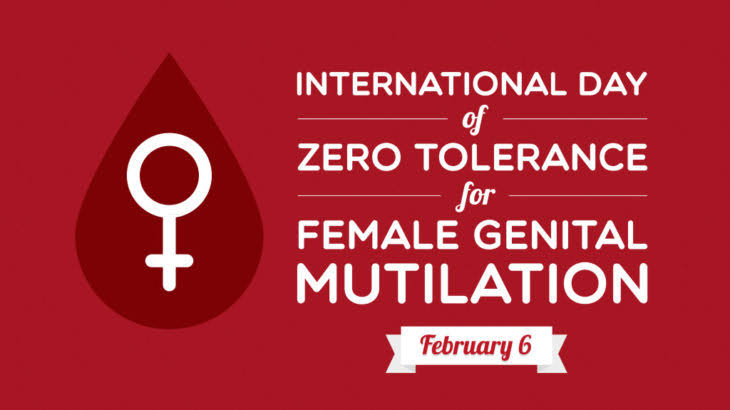Today is the International Day for Zero Tolerance for Female Genital Mutilation. Female Genital mutilation, also known as female circumcision, is the ritual cutting or removal of the external female genitalia. It is an age long cultural tradition, practiced in many parts of the world like Asia, Africa and the Middle East.
In Africa, Nigeria is one of the countries that practice the barbaric tradition. The belief of the practitioners is that female circumcision curtails promiscuity among girls and women who undergo the cutting. They say it also preserves the sanctity of marriage.
However, experts have long debunked the allegation on the grounds that it is not true. If the allegation was true, the rate of pre-marital and extra- marital sex prevalent in our society today would have reduced or eradicated. But the reverse is the case. So, if the practice has not achieved the objective for which it was started several centuries ago, why continue it?
An igbo adage says when an idol outlives its usefulness, it is destroyed. Unfortunately, investigations reveal that female Genital mutilation has no single benefit but has caused more harm than good to the victims.
According to the World Health Organization (WHO), as many as twenty million girls and women between zero age and forty-nine years in Nigeria, have undergone the ritual. And the zones with the highest female circumcision prevalence rate are the South West and South East of Nigeria.
In Nigeria, female Genital mutilation is habitually carried out on babies within eight to forty days of birth. It is also carried out on adolescents or youths as a passage into adulthood. Others are pregnant women prior to childbirth. The practice has short and long term effects on the victims.
Reports from the United Nations Population Fund, UNPF, mentioned the long term effects as complications during child birth, anemia, the formation of cysts and abscesses and colloid scars formation. Others are damage to the urethra, resulting in urinary incontinence, painful sexual intercourse, increase in HIV transmission, infertility and many other negative effects.
The short term effects are shock, hemorrhage, severe pains and fever. Female Genital mutilation is a violation of the reproductive health and rights of women and girls and must be eradicated
In May 2015, the then Nigerian President, Dr Good luck Jonathan, signed into law the Violence Against Persons Prohibition, VAPP, Act. The VAPP Act includes provisions outlawing the practice. Presently, the VAPP Act is only applicable in Abuja and Anambra state. The reason is that Anambra is the only state that has domesticated the Act out of the thirty-six states in Nigeria.
A professor of Gynecology and Obstetrics, Professor Oladosu Ojengbede, said that non domestication of the law across the states of the federation has made it more difficult to sanction erring practitioners.
So, for female Genital mutilation to be eradicated in Nigeria, every state in the country must domesticate the VAPP Act. In addition, there is need for anti Female Genital Mutilation campaigners to intensify public sensitization about the dangers of female circumcision because we cannot continue to practice obsolete tradition in this twenty-first century.





Comments are closed for this post.